The Algorithmic Classroom
South Korea’s ambitious experiment with AI in classrooms holds lessons for the world
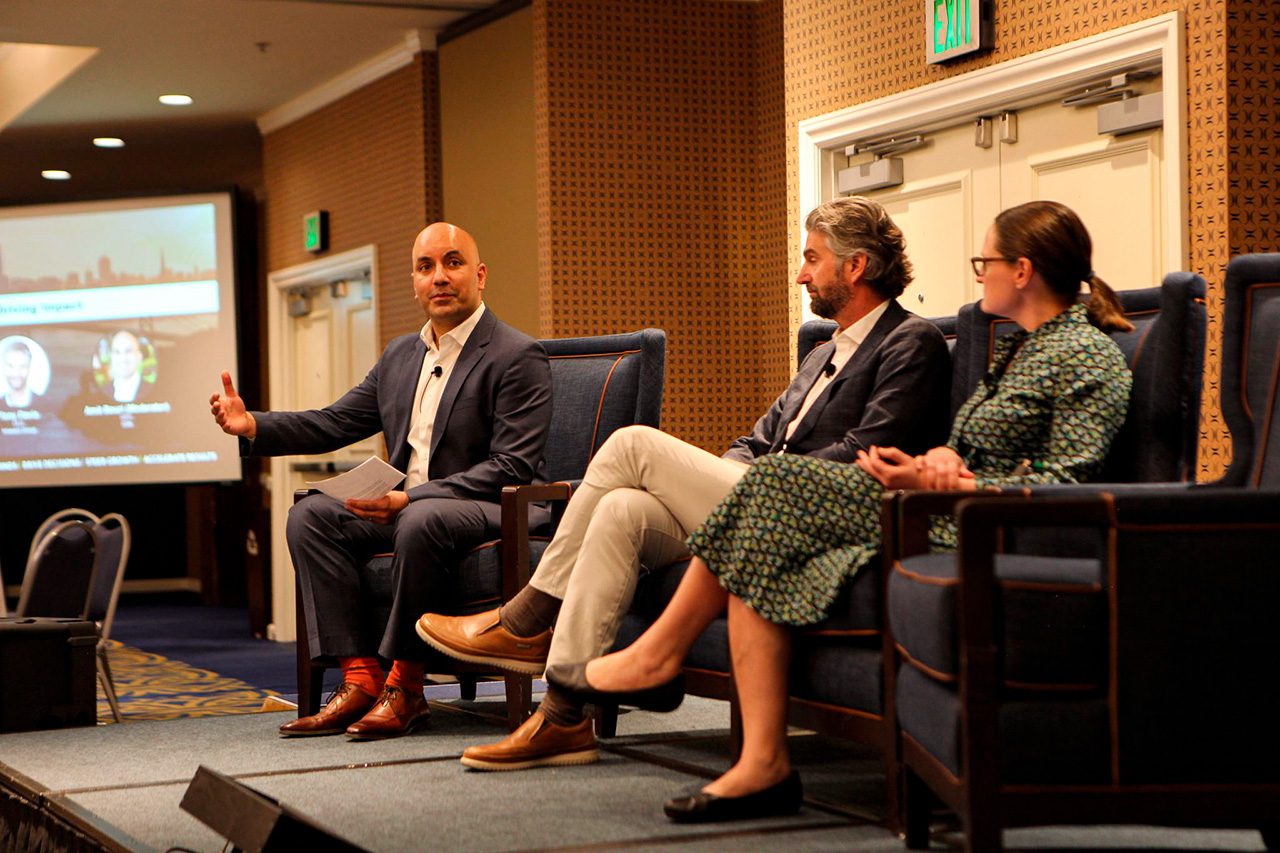
From left: Amit Bouri CEO and Co-Founder of GIIN; Tony Davis, CEO of Inherent Group; Jessica Droste Yagan, Partner & CEO of Impact Engine. Session topic: Families Driving Impact.
This April, 250 attendees convened in San Francisco for the GIIN West Coast Impact Forum — a gathering of asset managers, philanthropic investors, and other industry leaders focused on impact investing across North, Central, and South America. The smaller, regionally focused event offered a timely snapshot of the impact investing landscape. Amid a rapidly evolving political and economic climate, investors are looking past short-term volatility to explore strategies and vehicles that can drive long-term, systemic change.
“Systemic change takes time, and everything feels urgent,” summarized Amit Bouri, CEO and Co-Founder of the GIIN.
At the Forum, speakers explored how investors can leverage the tools of capitalism to drive progressive change. Jim Sorenson, a founding voice in the impact investing movement, emphasized that free markets and capitalism — “when directed and applied innovatively” — can offer solutions to lift those who have been left behind.
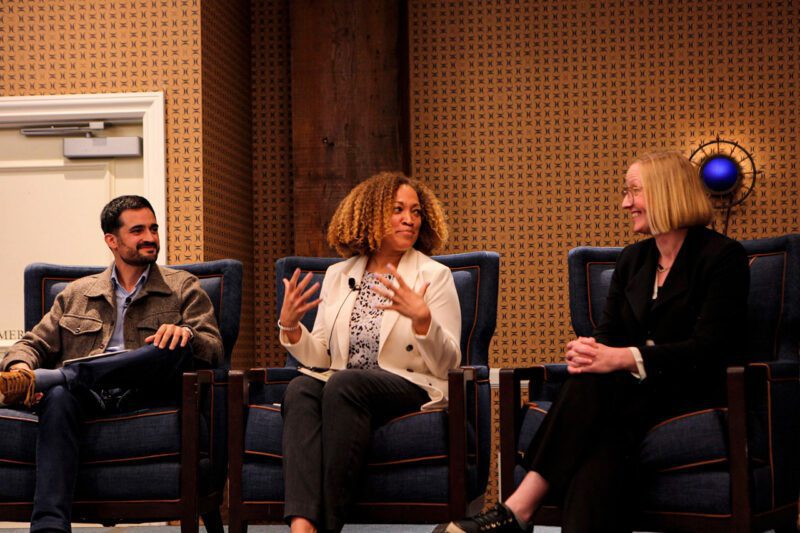
From left: Rafa de la Guia, Partner of Quona Capital; Laurent Booker Allen, Partner, Head of Impact & Portfolio at Jordan Park; Caitlin Rosser, Director of Impact Management at Calvert Impact. Session topic: Why Asset Owners Prioritize Impact Measurement and Management — and How Managers Align.
In the face of economic uncertainty, investors are being encouraged to reassess their impact goals, risk tolerance, and flexibility. Private philanthropy may be positioned to take bold steps, while others might consider further diversifying their capital strategies. “The fundamentals of what we experience in the market and what people see as the drivers of their interest and impact are as strong as they ever were,” said Bouri, urging investors to step up — not step back.
In an environment where federal funding is increasingly uncertain, private funders are stepping up with greater support and flexibility. Families, in particular, appear well-positioned to take on a leadership role in values-driven investing. While institutional philanthropy may be constrained by governance protocols, families can respond more nimbly — deploying capital quickly when timely investments can be catalytic.
We are seeing a lot of interest from families…who are increasingly thinking about how they center purpose and impact across their portfolio of investments, and we only expect that to continue to increase as time goes on,” shared Bouri.
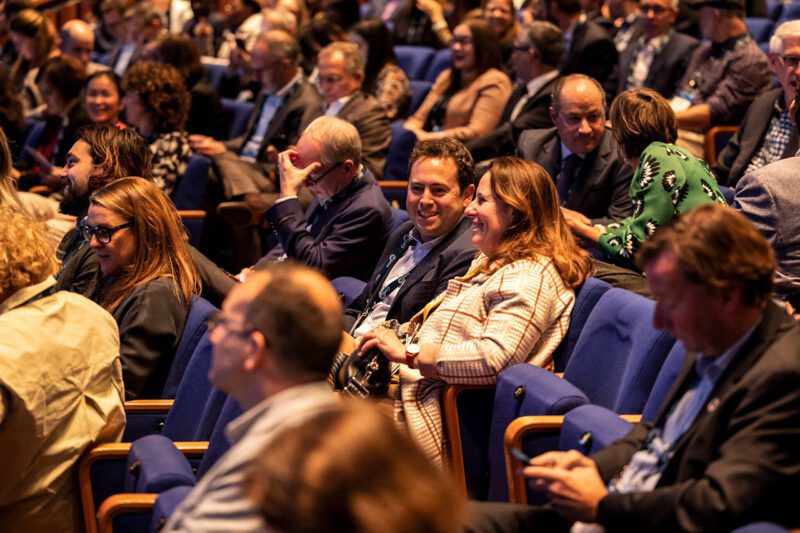
Audience members at GIIN West Coast Impact Forum
In the meantime, private foundations can offer stability to projects vulnerable under the new administration and reassure communities of their continued commitment to equity and justice. Surdna Foundation President Don Chen urged attendees not to abandon their impact goals, but instead to stay anchored in the vision that propels their work.
With affordable housing, employee ownership, and worker rights at the forefront, many investors are exploring how an ownership economy can create opportunities for underserved individuals and communities. Economic stability means more than just a living wage — enhanced stability strengthens the broader capital system and supports civic participation, laying the foundation for a resilient democracy.
There remain ample opportunities for impact investors to speak clearly about the social, economic, and environmental challenges they are addressing.
By expanding ownership opportunities — especially to those historically excluded from the benefits of capitalism — investors can reduce inequity and broaden economic participation for all.
For many — investors included — one of the most unsettling shifts is the changing landscape of language. Terms like “equity,” “diversity,” and “gender” have landed on watch lists, as the federal administration threatens legal action against organizations that use them. But investors should not be cowed by rhetorical intimidation.
There remain ample opportunities for impact investors to speak clearly about the social, economic, and environmental challenges they are addressing. In the months and years ahead, storytelling — not buzzwords — will be essential to building consensus and forging partnerships. Issues like small business support, housing, and disaster recovery resonate across the political spectrum. Leading with compelling narratives can move asset owners to act, strengthen the financial case for impact investing, and foster the bipartisan momentum needed for legislative change.
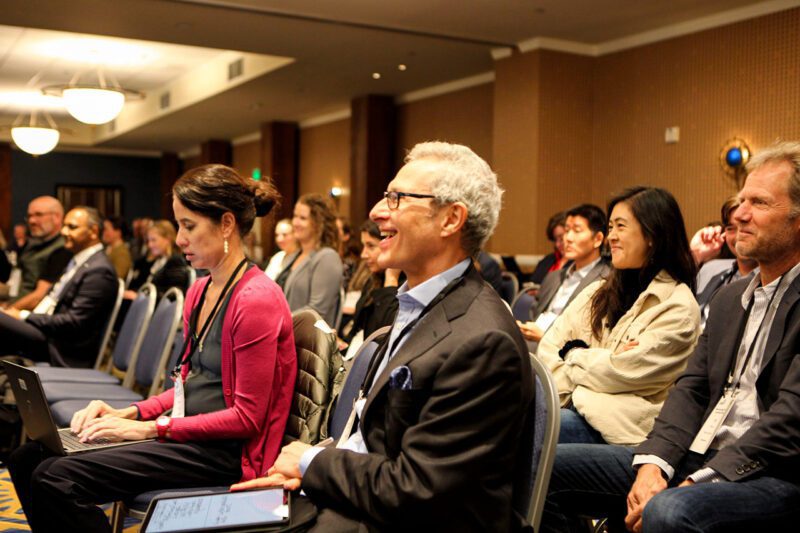
Audience members at GIIN West Coast Impact Forum
Investors seeking to mitigate risk while identifying catalytic opportunities are increasingly turning to creative financial tools. FDIC-insured deposits at mission-driven depositories offer an impact-oriented solution for managing cash. Investments in community development entities can complement real estate and private equity strategies, enabling a more holistic approach to affordable housing. As capital needs continue to evolve, investors are staying attuned to opportunities that balance financial returns with meaningful social impact.
“I think there’s a growing recognition that if you are going to have sustainable financial returns, you need a sustainable economy — which requires a sustainable society and a sustainable planet. And these fundamental drivers are drawing more people into impact investing,” said Amit Bouri in his closing remarks at the Forum.
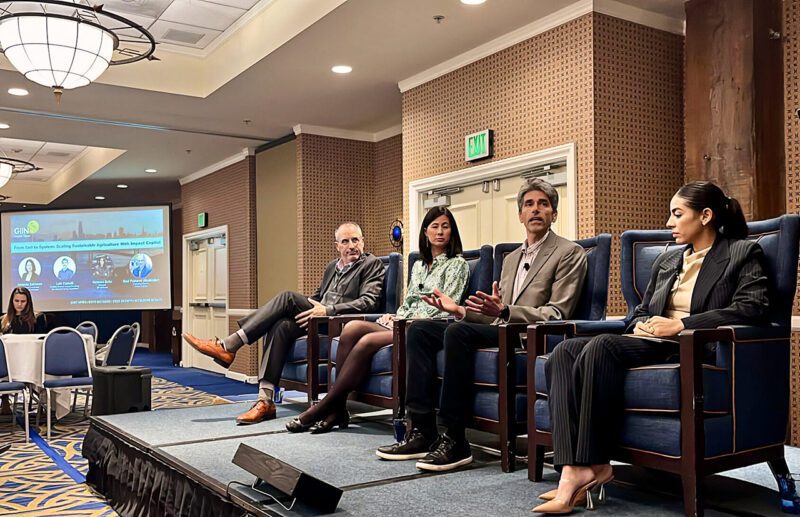
From left: Raul Pomares, Founding Partner, Sonen Capital; Amanda Zakharov, Director of Investment, Dirt Capital Partners; Loïc Comolli, Portfolio Director, Impact Investing, The Schmidt Family Foundation; Vanessa Bello, Principal, SP Ventures. Sesson topic: From Soil to System: Scaling Sustainable Agriculture With Impact Capital.
Like many others, investors are searching for meaningful ways to respond to the political, economic, and social challenges of our time. Yet many of these challenges — and the solutions needed — remain unchanged. In the U.S., we continue to grapple with a legacy of disenfranchisement and exclusion impacting people of color, women, immigrants, and many others. The planet still demands urgent and significant climate action.
Impact investing is uniquely positioned to address these enduring issues. With the power of capital systems, investors have the opportunity to disrupt harmful structures, catalyze innovation, and lay the foundation for a more equitable and sustainable future.
Related Content
Comments
Deep Dives

Featuring
Clarisse Awamengwi
IE Correspondent
July 17 - 12:00 PM EST

Featuring
Russell McLeod
July 24 - 12:00 PM EST
RECENT
Editor's Picks
Webinars
News & Events
Subscribe to our newsletter to receive updates about new Magazine content and upcoming webinars, deep dives, and events.
Become a Premium Member to access the full library of webinars and deep dives, exclusive membership portal, member directory, message board, and curated live chats.
At Impact Entrepreneur, we champion fearless, independent journalism and education, spotlighting the inspiring changemakers building the Impact Economy. Diversity, equity, sustainability, and democracy face unprecedented threats from misinformation, powerful interests, and systemic inequities.
We believe a sustainable and equitable future is possible—but we can't achieve it without your help. Our independent voice depends entirely on support from changemakers like you.
Please step up today. Your donation—no matter the size—ensures we continue delivering impactful journalism and education that push boundaries and hold power accountable.
Join us in protecting what truly matters. It only takes a minute to make a real difference.
0 Comments